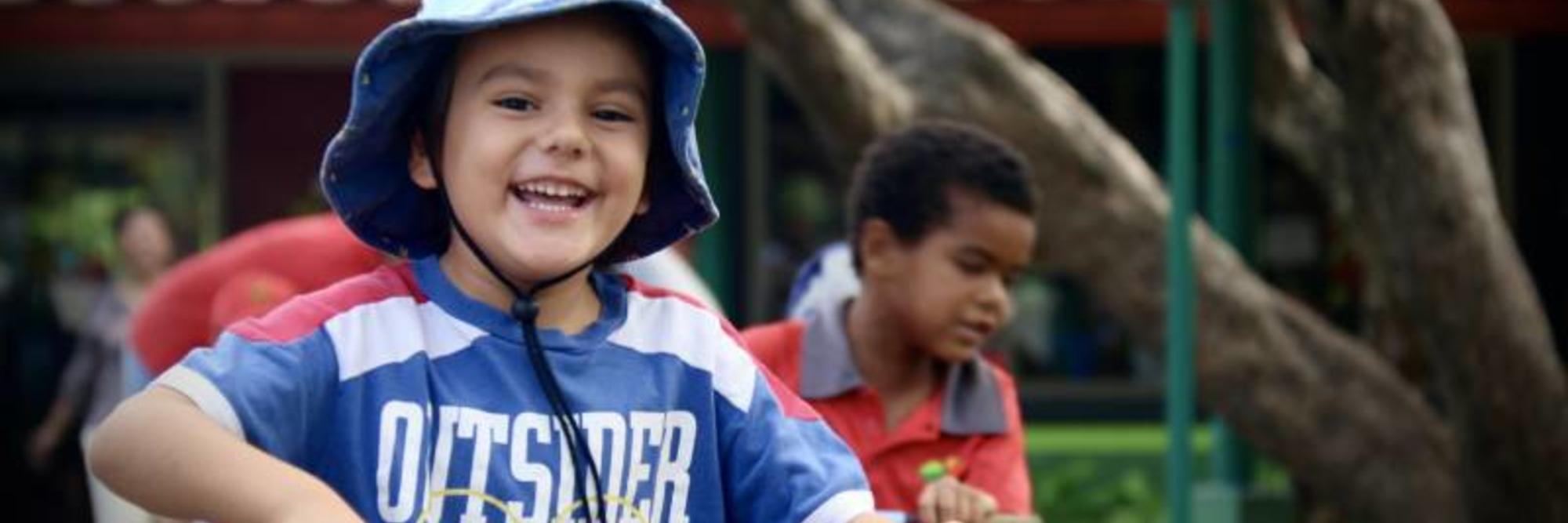When moving to a new country, there are many things to think about. One of the key concerns for parents is choosing the right school for their child. There are many aspects to consider and it is important to get the right fit for your child and your family.
Karen Hanratty, Principal of Nord Anglia School Jakarta, has over 20 years’ experience in international education. Here, she shares some key questions that are asked frequently by parents who visit the school when they have just arrived in the city.
How do I know if this is the right school for my child academically and pastorally?
It is important that parents feel that the school they choose matches their own aspirations in terms of a child’s overall development, both academically, socially and emotionally. Parents should look for a school that caters for the needs of the whole child, providing a balance between the academic programme and the focus on personal, social and emotional development. Does the school value academic achievement, and encourage each child to challenge themselves in their knowledge, skills and understanding? Is there a programme which develops children’s creativity, imagination and artistic ambition? Does the school develop children’s skills of enquiry, research, communication, collaboration, and problem-solving? Does the school have a clear set of values which are shared and upheld by all members of the school community? Is there a programme of community service or service learning?
What are the similarities and differences between Jakarta international schooling and the system in my home country?
The best international schools pride themselves on being amongst the best schools in the world. First-rate international schools hold a strong reputation with teachers and are thus able to attract the very best staff, who are experienced and committed career teachers. International schools follow a robust curriculum, usually that of the country they are affiliated to, but also have the flexibility to adapt the curriculum to suit their setting and match the particular needs and interests of an expatriate community. There are often also opportunities to access a wider range of experiences that might not be possible in a school at home. For example, at NIS we have close links with Juilliard in New York, MIT and UNICEF.
My child doesn't speak English...how will school support this?
Teachers in international schools are very experienced in supporting children who are starting on their journey of learning English as an additional language (known as EAL education). A good international school will offer your child a programme which will encourage their English language development and support them as they access the curriculum through English. Ask a prospective school about the type of support they are able to offer, if there are staff dedicated to EAL learning and what type of support the programme they offer consists of.
Will my child be accepted into the school community?
Any expat community experiences the joy of welcoming new arrivals into its midst and also the sadness of farewells when members of the group move on elsewhere. This ebb and flow impacts on us all, making us very aware and empathetic to the feelings of people who are newly arrived; we can all relate to the feelings newcomers are experiencing. In my years in international education, I have found children to be very open and welcoming of new members of their school community, quickly taking them into their circle of friends and helping them to settle in to the school as well as the wider community.
How does school embrace cultural diversity?
Most international schools enjoy a broad range of different nationalities, and increasingly children who come from dual nationality backgrounds. This rich cultural diversity provides the opportunity for children to learn at first-hand about the lives, traditions and beliefs of countries and cultures other than their own. Many schools host an International Day when children and families come together to celebrate the similarities and differences between their various cultures and to experience music, food, dance and language from other countries. Schools will also have a special focus on the host culture, encouraging children to learn about the country in which they are living and developing a respect for its people, culture and traditions.



